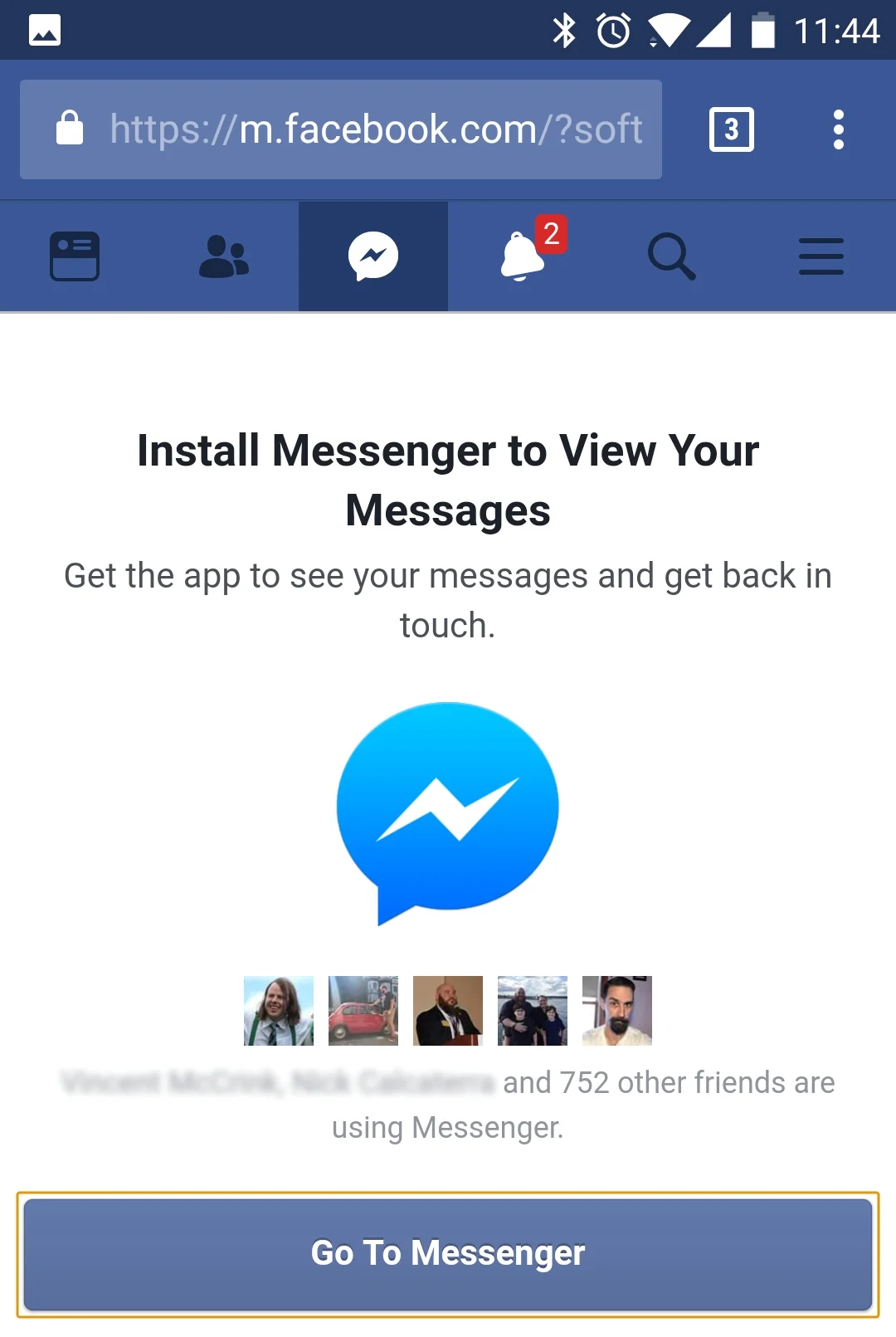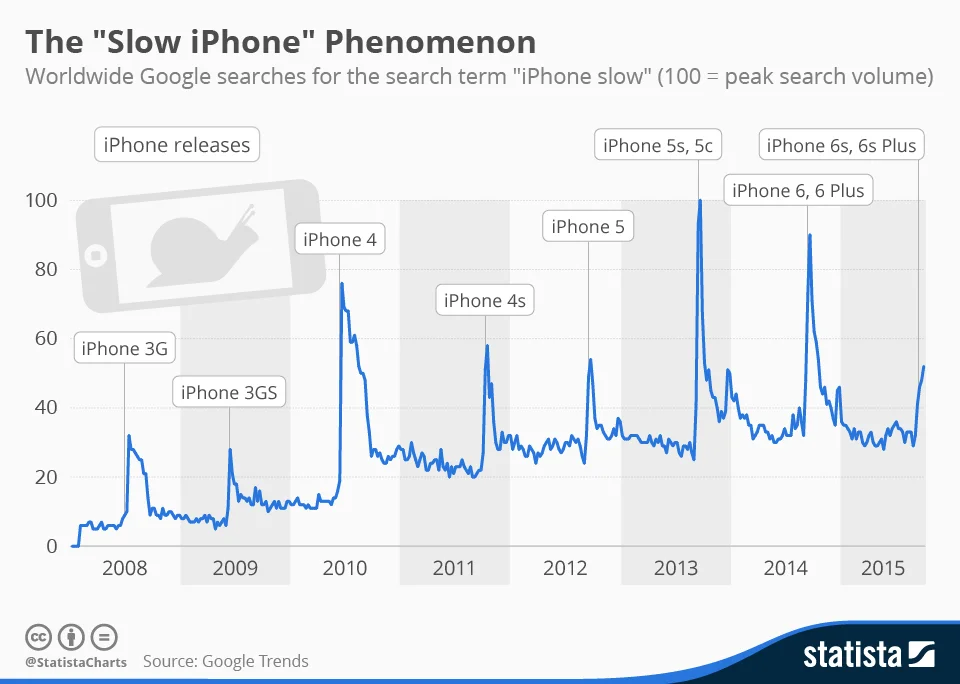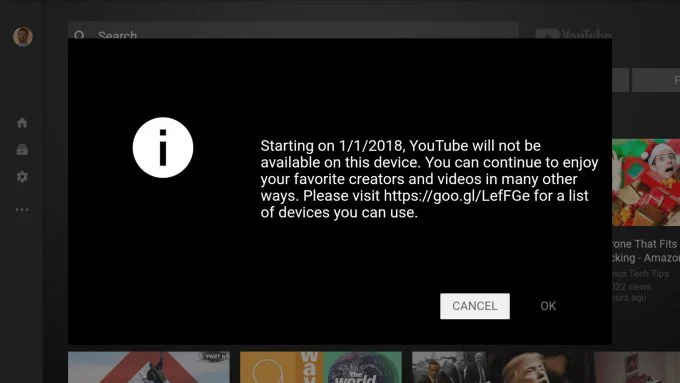Why Do Tech Giants Abuse Their Users?
Jeremy Kauffman • Jan 8 2018
(Protocols Not Platforms - Part 1 of 2)
Whether it's purposefully crippling mobile experiences, hard selling upgrades and add-ons, or shuttling users to pre-selected partner companies, every major tech company seems to proactively damage user-experience.
In a competitive market, this sort of customer abuse shouldn't happen. But before we get to the why, let's define the problem.
The Problem: Every large consumer internet company actively works to make a user's experience worse.
And it's not just the cable and phone companies that immediately spring to mind as monopolistic monsters engaging in this behavior - internet favorites like Reddit, Facebook, and YouTube are all guilty.
Even platforms that are ostensibly designed with the user's control and privacy in mind can end up abusing users when they're centrally controlled. WhatsApp comes to mind. WhatsApp built a huge global user base claiming to put users above advertisers. Then Facebook bought it. Now users may well have their personal phone numbers and metadata mined for Facebook's advertising algorithms.
Last week, we asked our users to send over some examples of tech companies mistreating their customers, and the response was overwhelming. Take a look at these examples from some of the most popular services and companies in use today. This is not meant to be an exhaustive list of companies being actively hostile to users, as the whole list could probably fill its own book.
Tech Giants Hate You: The Proof
Facebook had (has!) a fully working, web-based version of their messaging platform.
They actively disabled on mobile to force more downloads of the app. Why would they do this? When you stay in their app ecosystem, they can extract more demographic information (location services, what other apps you're using, etc.) and ad revenue from you.

Apple
We could talk at length about Apple's hostility towards free software and the users' ability to own and control their own devices.
But let's look at the most unambiguous example possible: Apple actively slows down old phones to encourage more sales!

See this for the full details on this story.
Evidently, Reddit really wants people to use their mobile app.
Right now, it takes five clicks to view a GIF hosted on a non-Reddit site on mobile. It used to take one.
Not because there is anything wrong with the web-experience, of course. But forcing people onto mobile means Reddit can collect a lot more information about you. When pushed for an answer, Reddit's response was less than impressive - they claimed that they were annoying users to test ways to deliver better user experience.
YouTube
We could talk a lot about how YouTube's treatment of creators, as well as its pro-censorship policies, constitute hostility.
But here's an even clearer example:

YouTube recently disabled all FireTV users from accessing YouTube for no reason other than to get back at Amazon. As these tech giants duke it out, YouTube is making their creators miss out on millions of views on Amazon devices.
Businesses are greedy. Is this news?
Some people may read these examples and shrug. Companies are greedy. Is it really surprising they treat users this way? And this response is partially right. Companies are greedy.
But in a competitive economy, greed is typically satisfied by making your services better, not worse. To quote a wise Scotsman, "It is not from the benevolence of the butcher, the brewer, or the baker that we expect our dinner, but from their regard to their own interest." Your local pizzeria offers free bathrooms, delivery service, and fresh ingredients because they know it will give them a competitive edge, not because they love you. Companies know that if they make life worse for their customers, those customers will take their business elsewhere.
So the question becomes: why is this possible? Why are large tech companies able to get away with such abusive behavior?
And the answer is these platforms are not nearly as competitive as restaurants. If the pizza place jacks up prices, I go to another pizza place. When Facebook treats me like crap, I complain about it... on Facebook. But not all of our tech experiences are like this!
If we look at other aspects of the internet, it's much more like restaurants than Facebook. And that's because a lot of the tech driving the web is a protocol, not a platform. My browser can't treat me like crap because HTTP is an open standard. Anyone else can make a browser like anyone else can make a restaurant. The same is true for my email client or my torrent client.
The solution to this problem is to build protocols, not platforms. When we build protocols, people can leave. When we build protocols, it's the users, not the middlemen, who retain control.
Across the board, users have never been less satisfied with the systems they rely on to connect with their friends and share their creations. Centralized systems just can't provide the responsiveness and experience that users want.
But a new technology has already started to rock the foundations of those centralized systems. The innovation of blockchain is the most powerful development in over a decade in making this possible, and we'll talk about this more in Part 2.
